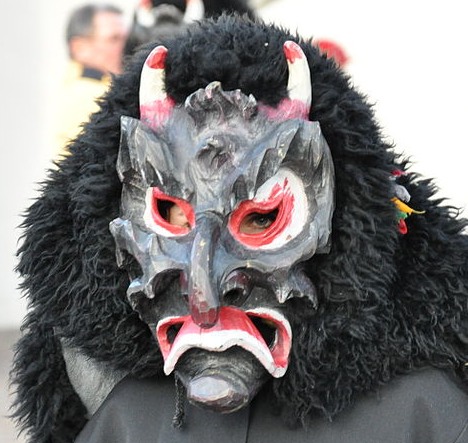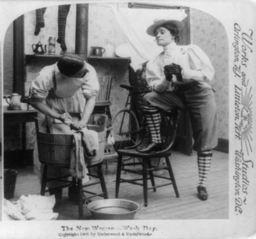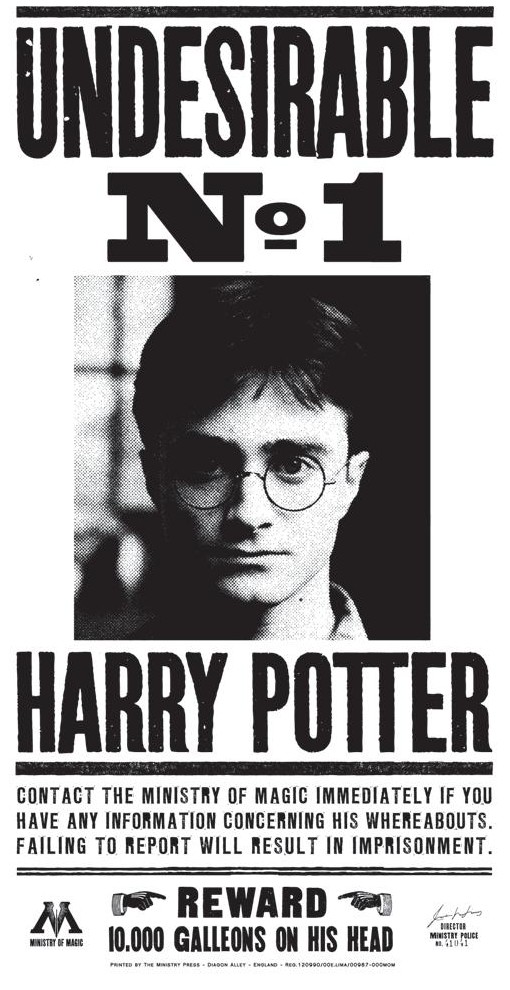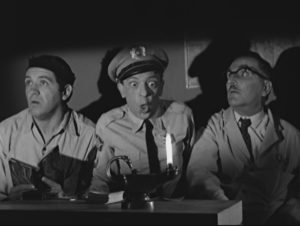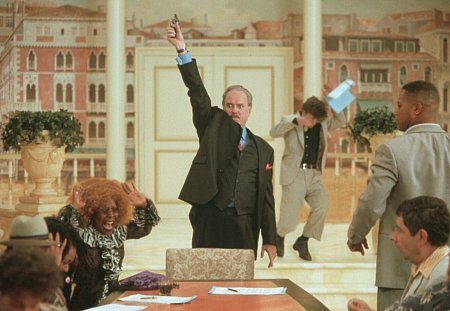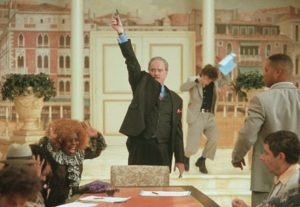
Arena
by Karen Hancock
Bethany House Publishing
Adult science fantasy/allegory
Re-released, 2012
Callie Hayes is living a life of fear and disillusionment when she volunteers for a psychology experiment that promises to turn her life around. As her orientation proceeds, Callie becomes frightened by the secrecy and evasion she encounters. When she demands to be released from the program, she is suddenly dropped into a terrifying alien world and into a perilous battle between good and evil. With limited resources and only a few cryptic words to guide her, Callie embarks on a life-changing journey. Will she decipher the plans the Benefactor has established for her escape, or will she succumb to the deception of the Arena?
– – – – –
Excerpt from Chapter 1
âThey wonât be taking blood or anything, will they?â Callie Hayes looked up from the clipboard in her hands to the dimpled youth behind the receptionistâs counter.
âOur physical evaluations are noninvasive,â he assured her. âCompletely painless.â
âFor goodnessâ sake, Callie,â Med Riley protested beside her. âItâs only a psychology experiment. Why are you giving him the third degree?â
âI want to know what Iâm getting into this time.â Callie pushed slipping wire-rim glasses back up her nose as she flashed an accusing glance at her companion.
Meg was petite, freckled, and green-eyed, her face framed by chin-length black curls. She wore a white spaghetti-strap T-shirt with blue shorts, and sheâd been Callieâs best friend since fourth grade. Together theyâd endured adolescence, the divorce of Megâs parents, a two-year obsession with Zane Grey novels, high school, and college. After graduating from the University of Arizona four years ago, theyâd both settled into a holding pattern—Meg waiting for a teaching position at one of the Tucson school districts, and Callie just waiting. It was through Megâs temporary job with the universityâs Psychology Department that she stumbled onto the world of the paid guinea pig. âEasy money,â she dubbed it.
But Callie discovered there were reasons guinea pigs got paid.
âThirty dollars,â Meg had promised last time, âand all we have to do is lie in the sun for a few hours.â
Ha! It was bad enough having stranger smear squares of sunscreen on her bottom and peer at them every fifteen minutes, but when the local news crews showed up, Callie nearly died of embarrassment—and swore sheâd never let Meg talk her into any such thing again.
âThis isnât like the sunscreen business,â Meg assured her. She turned to the receptionist. âWe had one bad experience, and now sheâs paranoid.â
The baby-faced youth nodded. His nameplate read Gabe, and though he looked like a high schooler, Callie guessed he was a college freshman.
âAsk as many questions as you like,â he said. âIâll answer anything that wonât affect the integrity of the experiment.â
Callie frowned, fingering the end of the thick red braid that hung over her shoulder. âNo drugs?â
Gabeâs blue eyes widened. âOf course not! As our flyer says, we offer evaluation of and instruction in the decision-making process. There are absolutely no drugs.â
âSo what do we have to do for the fifty dollars?â
âYouâll be negotiating an obstacle course and—â
âObstacle course?â Callie looked up from the waiver. âThat wonât involve heights, will it? Rope climbing, that sort of thing?â
âGood grief, Cal,â Meg cried. âItâs not boot camp.â
âJust let the man answer, okay?â
âIt is on the ninth floor,â Gabe said. âAre you acrophobic?â
âonly once I get to the tenth floor.â She laughed nervously.
âMaybe we can help with that.â
âI was just joking.â The last thing she needed was another bout with a shrink.
Gabe shrugged. âWell, weâve had good success with phobias—and fear in general, for that matter.â
âSee?â Megâs short dark curls brushed Callieâs shoulder as she leaned close. âItâs not like that other thing at all. In fact, it might even give you an excuse to miss your sisterâs birthday bash tonight. Unless you think the Mr. Right sheâs got for you this time really will be Mr. Right.â
Callie snorted. Her sister, Lisa, moved in an alien world—upscale, fashion-fixated, and socially saturated. Lisaâs Mr. Rights were inevitably lawyers or MBAs, all acquaintances or co-workers of her husbandâs. Expecting another version of Lisa, the men were always disappointed when they met her short, dull, tongue-tied little sister.
Callie detested the whole scenario. And the possibility of having an excuse for missing the affair was a powerful incentive. âHow long will it take?â she asked Gabe.
âNot more than a few hours if you follow instructions. We do ask that you commit to finishing the experiment, however.â
âAnd we wonât have to do anything embarrassing or improper?â
He looked amused. âOnly if you choose to.â
âCome on, Cal,â Meg murmured. âYou said youâd do this.â
âOh, all right.â Callie signed the waiver and handed it over. Itâs only for a couple of hours, she consoled herself. And who knows—maybe I will gain new and powerful insights. Maybe Iâll learn how to say no to Lisa. Maybe itâll even turn my life around like the flyer promises. Thereâs no denying it could use some turning around.
Four years out of college, she was still making minimum wage raising rats for biology experiments. She still lived in a rented apartment, still had to endure her motherâs lectures about finding a man and getting focused, and still wasnât any closer to doing what she really wanted to do—paint. Unfortunately that was something both her mother and sister considered completely unacceptable. A career in art was too unreliable. Worse, her deadbeat father was an artist—when he wasnât following the horse races or losing his money in Las Vegas—and she didnât want to be like him, did she?
At her motherâs insistence, she had gone into pre-med. But she was not accepted at med school after graduation—much to her relief—and thus far the only thing her science degree had turned up was the rat-raising job. A job that somehow spilled from part time into full and consumed all her energy, so that little art got done, and she stayed where she was, trapped, frustrated, and waiting for a miracle to set her free.
Gabe told them to go on up and indicated an elevator panel in the textured beige wall beside the desk. Meg hesitated, looking uncertain, then leaned over the counter. âAlex Chapman was supposed to meet us—â
âYes. Heâs waiting upstairs.â
As they entered the elevator May nudged Callieâs arm. âHeâs waiting for us! Did you hear?â She fluffed her black curls and groped in her purse for a breath mint. âDo I look okay? What am I gonna say?â
âHello usually works.â Callie tried not to think of the dark swell of space beneath her feet, pushed away thoughts of cables snapping and cars plummeting. The last thing she wanted was to have an attack here.
âBut what about after hello?â Meg persisted.
âYou never had any problems talking to Jack.â
âThereâs a light-year of difference between Jack and Alex. Waitâll you see him, Cal. He is so gorgeous.â
âSo youâve said. Many times.â
âHave I?â Meg giggled.
Callie watched the six blink out and the seven appear over the door. Uneasiness churned in her middle. She was okay up to the seventh floor, but after that, things got dicey. Floor-level fear was a fairly common manifestation of acrophobia, but because it didnât match the stereotypical fear of heights, it was harder for others to relate to. You were expected to freak out when you looked out a lofty window or stepped onto a rooftop observation deck, and most people nursed enough of their own latent acrophobia to sympathize. But falling into a full-blown panic just because the numbers changed on an elevator panel? Even she knew it made no sense.
Not that it mattered. Above the sixth floor, she got jittery. And above the ninth. . . .STOP it! Donât think about it!
































